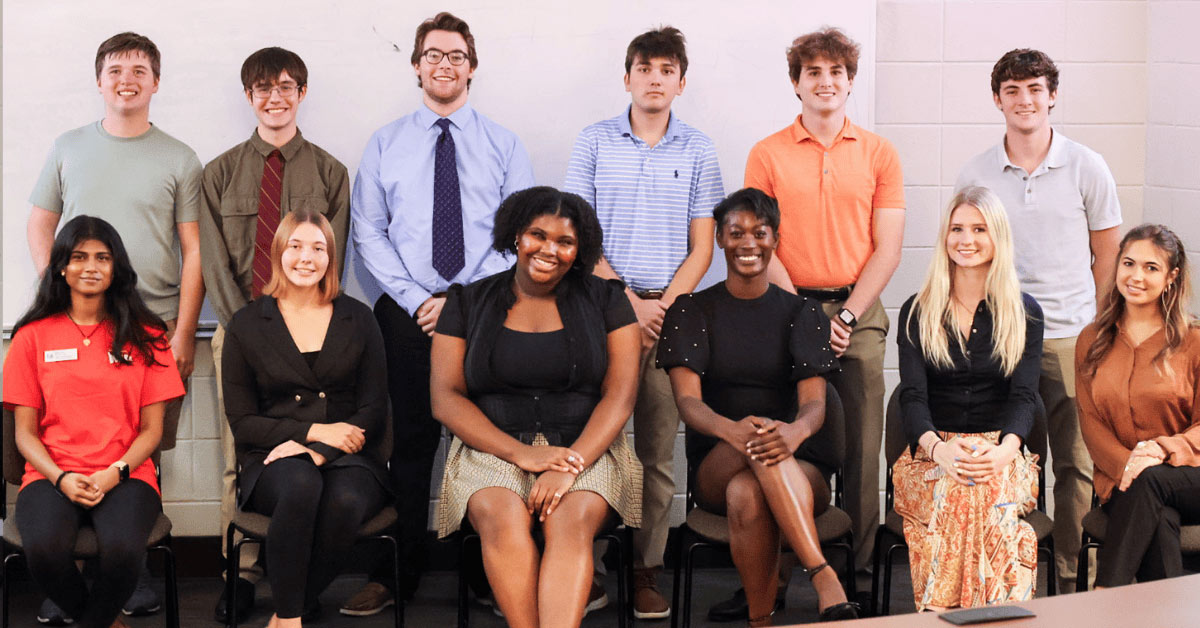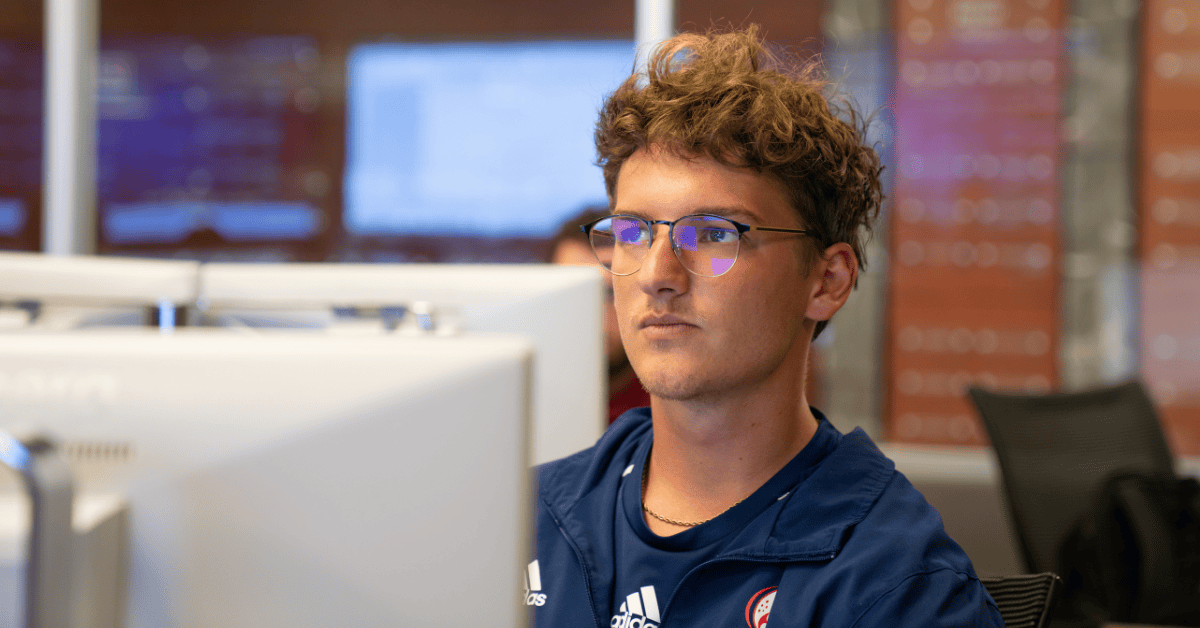Ask the Expert
Posted on January 19, 2021 by MCOB Outreach

Emerging Models for Doctoral Education
In the past decade, a more flexible alternative to traditional doctoral education has emerged. These new programs facilitate several broad-career opportunities for individuals with business experience who want to transition into another career or an expanded organizational role in industry. One option is full- or part-time teaching at the university level. A second option is a consulting career in the emerging “gig” economy. The third option is expanded industry opportunities requiring business analytics skills. There are more than 20 of these non- traditional doctoral programs in the U.S., and the Mitchell College of Business has one of the more established programs (attracting students not just from the southeast region but throughout the U.S. and even Canada). Academic majors in non- traditional Ph.D. programs include management, marketing, accounting, finance and information systems. The MCOB doctoral program was launched in 2013 with a management concentration; it added the marketing concentration in 2017; and in 2021, the program will begin offering an innovative new concentration in business analytics. There are currently more than 50 students enrolled in the MCOB Ph.D. program.
How do they differ?
Traditional Ph.D. programs require students to quit their jobs and become full-time students. They also require four or five years to complete the degree and graduate (sometimes even longer). Non-traditional Ph.D. programs, like the MCOB program, enable students to keep their current jobs, complete their degrees at the same time, and often finish the program in as little as three years. To do so, classes meet on weekends — usually nine times a year. Students in traditional Ph.D. programs are typically 25 to 30 years old, have little job experience, and often no meaningful work experience when they enter the program. The students go directly from their master’s degree program to the Ph.D. program and their knowledge of business is very limited. Students are required to live near campus, expected to teach for a minimal salary and, sometimes, receive a small stipend to offset living expenses. In contrast, students in non-traditional Ph.D. programs are typically 30 to 55 years old and have considerable job experience. Their knowledge of business, including managerial decision-making, is clearly much more extensive (as are their maturity levels). Because the program is weekend-based, most students are able to retain their current jobs and use vacation time for any missed workdays. Some employers subsidize the tuition or fees for the program.
Which kind of program would you choose?
Increasingly, students are choosing non-traditional Ph.D. programs — not only for the above reasons but also because, in the complex, data-focused decision-making business environment, doctoral-level analytical skills enhance the likelihood of long-term career success.
Student Perspectives on a non-traditional PhD program?
Comments from students:
- "My fellow students are really great. They are highly motivated, intellectually curious but practical in their thinking, and we all work together and support each other. They also have lots of different experiences to share when we have group discussions and brainstorm to identify solutions to real-life business problems."
- "After talking with doctoral students at other universities, I realize how thankful I am to have a supportive group of students in my cohort and faculty who are closely connected to the program. Traditional, full-time Ph.D. students are often competing with one another to do research on the same topics — dictated by faculty interests. Conversely, in the Mitchell College of Business, we are encouraged to do research that reflects our interests and work experience, as well as innovative areas suggested by global scholars who are excelling in that area."
- "I like the fact that the MCOB program really stretches my thinking in ways I had not thought of before now. I have learned new business principles and also how business decisions involve corporate governance, analytical approaches to decision-making, psychological concepts, and many other factors that I had not considered previously."
- "The relationships I have built with my fellow cohort members, as well as the faculty of the Mitchell Ph.D. program, have been extremely beneficial to my personal and professional growth. The culture of this program is welcoming and collaborative, and I feel honored to be a part of it."
- "The idea of basing my decisions on data and analytical approaches is very valuable in today’s rapidly changing data-driven environment."
- "The iterative process of investigation (reading, hypothesizing, writing, re-reading, re-writing, etc.) has sharpened my approach to everything I do in life. I am now less sure of my hunches in the beginning stages of problem-solving, yet more sure of my conclusions at the end. The learning experience has been invaluable."
- "I was blown away by the quality of the faculty delivering the MCOB Ph.D. program."
- "My initial thoughts on getting a Ph.D. were very binary — either I uprooted my family and moved to a traditional Ph.D. program, or I settled for a lower quality (online) program. MCOB offered an opportunity to earn the degree I wanted without forcing me to uproot my family."
- "I was concerned that a non-traditional Ph.D. program would not be as highly regarded amongst those at my higher education institution. Instead, I’ve heard from countless colleagues that they would have preferred this approach had it been available when they were pursuing their Ph.D."
- "MCOB has very strong entrance standards, but once accepted, there is a very strong collaborative environment for students."
- "The presentations of Global Scholars from other universities who are world-class scholars in their fields are a Mitchell College advantage that other Ph.D. programs cannot match Faculty Perspectives."
- "I love teaching in this type of program. Students are knowledgeable about practical business challenges and opportunities. When we discuss competition, developing effective teams, or managing problem employees, students have experienced these types of problems and can comment in a meaningful way, including alternative approaches to solve problems."
- "Class discussions in a non-traditional Ph.D. program are mostly two-way exchanges of ideas and solutions. I often learn as much from my students as they learn from me."
- "I enjoyed my previous opportunities to teach doctoral students in a traditional format, but what I like most about the non-traditional MCOB program is the knowledge students bring to class (and also include in their assignments)."
- "One factor I have noticed and appreciated is the level of engagement exhibited by non-traditional doctoral students. They are engaged not only when in the classroom but also between classes with each other and the faculty as a result of the increase in technological support resources.
Career Opportunities when you graduate with a PhD degree?
Academics
Business schools have expanded rapidly in the past few decades, and this growth has resulted in a faculty shortage. Quite a few of the students in the MCOB Ph.D. program are already teaching at the university level but only have a master’s degree. Without a doctoral degree, salaries in academia are low. With a doctoral degree, however, it is not uncommon to double one’s salary when moving from an instructor position to a full-time professor. Other students have been in the industry for 15 or more years and want to transition to a teaching career (so they can share what they have learned and have a more flexible lifestyle).
Industry
Consulting or industry positions requiring new skills also provide new opportunities. With a doctoral degree, you learn cutting-edge knowledge and skills in business analytics, artificial intelligence and leadership (to name a few). This knowledge prepares you for emerging careers requiring new skills, and for individuals who want to venture into business consulting, these expanded skills provide a strong, competitive advantage compared to many established consulting firms.
-

Ethics Month Recognition Held in October
In October, the Mitchell College of Business recognized Ethics Month. ...
November 18, 2025 -

Melton Center Introduces Creative Pitch Competition
The Melton Center for Entrepreneurship and Innovation invites any Univ...
November 13, 2025 -

Jaguar Investment Fund Marks 10th Anniversary with Reunion
The Jaguar Investment Fund, a program of the Mitchell College of Busin...
November 11, 2025 -

Jaguar Investment Fund Celebrates 10th Anniversary
Founded in 2015, the Mitchell College of Business Jaguar Investment Fu...
November 11, 2025


